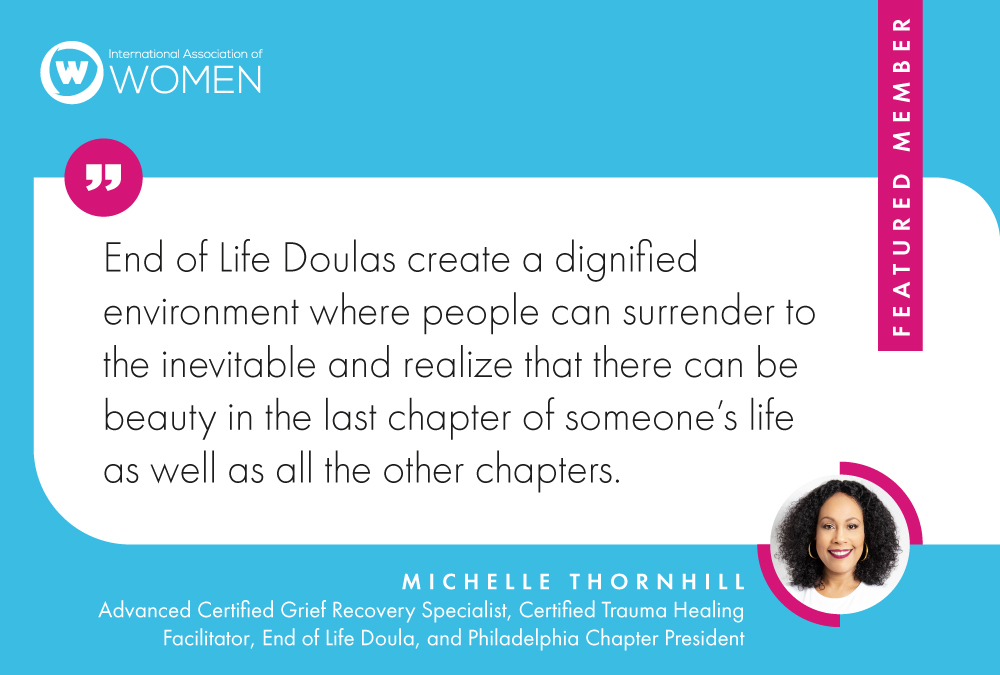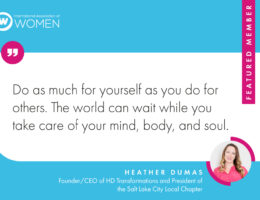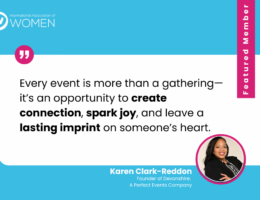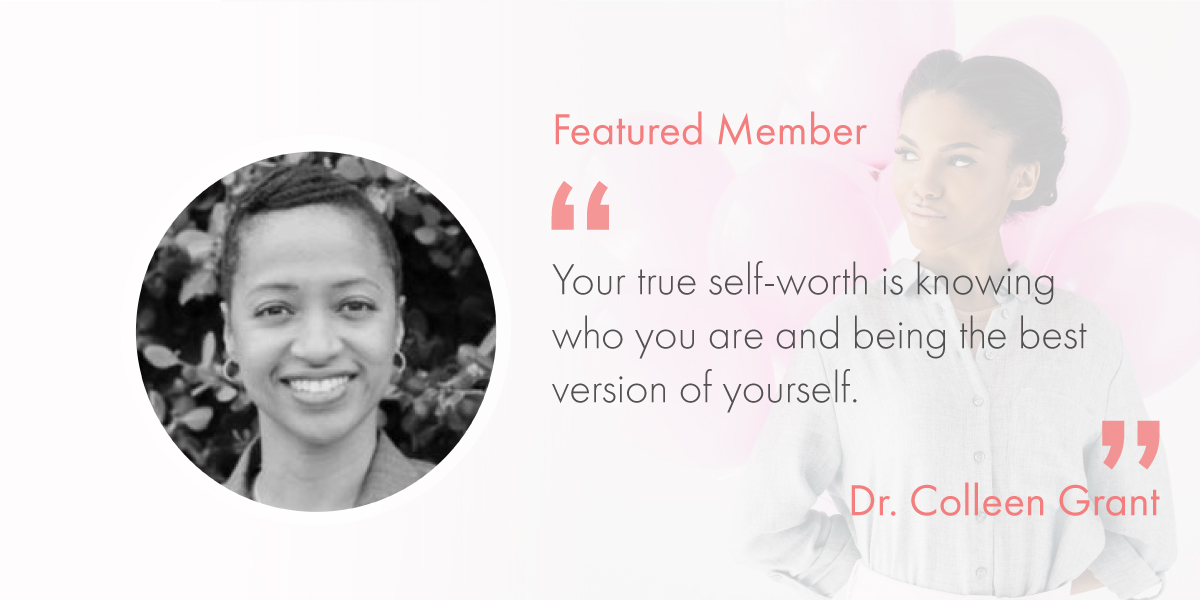Since entering the funeral services in 1985, Michelle Thornhill saw thousands of families year in and year out leaving still overcome with grief. She wanted to help them prepare more than a funeral director could do. Thus, Michelle pursued an advanced certification in grief recovery. “I help women get to the root of the emotional pain that holds them back from living an honestly happy and satisfying life,” she says. “People think that dying is a negative experience. It’s a human experience. The human condition and the human body can only last so long.” Today, she continues her work as an Advanced Certified Grief Recovery Specialist, Certified Trauma Healing Facilitator, End of Life Doula, and is a member of the board of directors for the National End of Life Doula Alliance.
Michelle assists people in coping with grief, coming to terms with their life-ending, and more. She also facilitates conversations for families to discuss difficult feelings before passing. “As a society, we use life-saving methods to prolong life, even when all hope is gone. Doctors and medical professionals are trained to save lives. But, End of Life Doulas create a dignified environment where people can surrender to the inevitable and realize that there can be beauty in the last chapter of someone’s life as well as all the other chapters,” she says.
Some of those difficult conversations include what will become of their homes, clothes, money, and other personal things. “How are we going to create a plan that’s not kept in your heart and your mind, but that’s in writing to help other people navigate through all the things that need to be done? If families have a plan or a checklist, then they don’t have to wonder if they did the best they could do; they did what that person asked them to do,” she says. Grief is a powerful feeling and, under traumatic events, it can be difficult to remember information. With systems in place, a loved one’s passing can focus on grief over the more business aspects of life. Michelle encourages people to find help even if years have passed since their loss.
Professional women who are high achievers may find it harder to recognize grief. “After all, grief is the normal and natural reaction to the loss of any kind,” says Michelle. “There are 40+ different events that can trigger grief in one’s lifetime. Even losses such as one’s autonomy, or a balanced routine, or even hope can be hard to pinpoint for individuals when they are in the midst of their experience.” Thus, women need to find space to recognize and feel their grief. She recommends providing “just as much compassion for themselves as they do for others.”
Since the start of the pandemic, she also found a shift in how her clients approached their grief. Michelle’s business, Legacy & Hope, provides services including group grief support, final arrangement planning, seminars, workshops, training, and more. She found online services to be more accessible and less straining. “They had more time to practice their coping strategies and be conscious of what they were doing around their grief. Really allowing themselves to be mindful and comprehending instead of rushing through it, which is what everyone was doing before the pandemic,” she says. As much as the pandemic increased the amount of those grieving, the unprecedented amount of time fundamentally changed the way people coped with death.
Another part of her business is an educational program for parents and guardians to help children cope with loss. “Adults have a hard time dealing with their grief. We learn what we live, and we pick up some of those myths that are not true, and then we pass them along to children,” she says. “Often people will shield children from the realities of life, and then they are not equipped to handle it when it comes to their doorstep as adults.” With the rise in school shootings, discussions focusing on children and grief are vital.
Outside of her career, Michelle is a dedicated IAW member and Philadelphia Chapter President. She feels her position allows her to help as many people as she can with the support of her chapter. Often, she facilitates coffee and conversations that grow someone’s ideas through the many brilliant, professional women in the room. “I’ve been in other organizations, but by far, I really believe in my heart that this is the best organization for women! My advice is to nose around in there and find your tribe. Then, allow it to take root in you and see what blossoms.”
Connect with Michelle:
Twitter
Want to read stories from our members? Check out our featured members on our blog, or sign up for one of our many upcoming events to meet them in person or online. Community is just a click away with an IAW membership!




